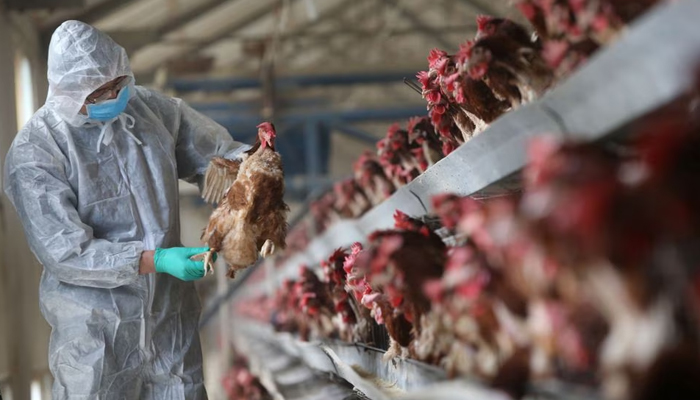Japan running out of space to bury bird flu infected chickens
16 out of 26 prefectures of Japan did not have enough land to dispose of culled birds properly
April 06, 2023

Bird flu in Japan has caused the country the loss of a substantial number of chickens and now it has not enough space to bury them, CNN reported.
According to the Japanese state media, NHK, "16 out of 26 prefectures in the country did not have enough land to dispose of culled birds properly."
All 26 prefectures had reported record avian flu outbreaks in recent months leading the prices of poultry and eggs to surge.
The flu naturally occurs among wild aquatic birds and they have the ability to transmit the virus to other animals through various sources such as saliva and body excretions, according to the Centers for Disease Control and Prevention.
As local authorities, in order to prevent the spread, kill and bury the infected animals, the shortage of land for their burial has caused a new problem for the authorities, NHK noted.
NHK also reported that more than 17 million chickens have been killed this season — the record highest.
In 2020, Japan killed nearly 9.9 million chickens when bird flu struck the country. It was its last record.
A report which was published last month by Rabobank said that egg prices have surged to a record high in 2023 citing the Avian flu as a major cause and the dear cost of feed for hens.
Russian Invasion of Ukraine has also caused an uptick in global feed prices which were already doubled from mid-2020 to mid-2022, it noted.
Nan-Dirk Mulder, Rabobank's senior analyst of animal protein said: "Now, prices globally are 2.5 times higher than the reference year of 2007, and have increased more than 100% since this time last year."
The current situation has led people to buy their own hens to make their supplies secure.
Rabobank also noted that egg prices in Japan have reached a 10-year record high — $1.8.
“Prices in many other markets have reached historic highs as well, including in Thailand, the Philippines, Israel, New Zealand, Nigeria, Kenya, Brazil, Mexico, and Argentina,” it noted.
The condition is to persist and there is no likely improvement this year.
The analyst Mulder noted: "While countries such as Japan and the United States may have already experienced price peaks, we expect prices to stay relatively high throughout 2023, especially in markets heavily impacted by avian flu, high costs, and regulatory changes."
"In other markets there will be some drop in prices, but not to pre-2021 levels, as lingering high input costs are keeping prices higher."











